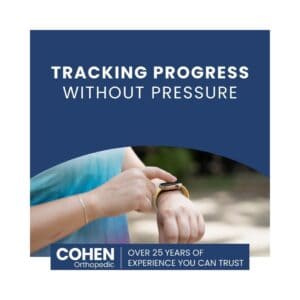Why Men Delay Orthopedic Care – And Why It’s Time to Stop
Taking Pain Seriously Is a Sign of Strength, Not Weakness

When it comes to health care, men are often reluctant to seek help—especially for issues involving joint pain, injuries, or musculoskeletal discomfort. Orthopedic care, in particular, tends to be delayed until pain becomes severe or mobility is significantly impacted. But ignoring these signs doesn’t just risk long-term damage—it can shorten your active years and reduce your quality of life.
This Men’s Health Awareness Month, let’s unpack why men put off orthopedic care—and why now is the time to change that mindset.
Common Reasons Men Avoid Orthopedic Visits
1. “It’s Just a Minor Pain” Mentality
Many men downplay joint or back pain, chalking it up to aging, overuse, or just “sleeping wrong.” But what starts as mild discomfort could be an early sign of:
- A rotator cuff tear
- Cartilage damage
- Degenerative joint disease
- Herniated disc
Catching these early can mean simpler treatments and quicker recovery.
2. Fear of Surgery or Being Sidelined
There’s a common fear that visiting an orthopedic specialist means surgery is inevitable. In reality, most cases are treated non-surgically through:
- Physical therapy
- Injections
- Bracing or orthotics
- Lifestyle modifications
Even when surgery is needed, minimally invasive procedures now offer faster recovery and lower risk.
3. Cultural Pressure to “Tough It Out”
From sports culture to traditional masculinity norms, men are often taught to “push through the pain.” But pain is your body’s warning system, not something to ignore or suppress.
Delaying care can make minor injuries worse—sometimes leading to chronic issues, permanent joint damage, or long-term disability.
4. Work and Family Commitments
Many men, especially in physically demanding jobs or as heads of households, feel they “don’t have time” to take care of themselves. But untreated orthopedic problems often lead to:
- Missed work days
- Reduced productivity
- Inability to enjoy quality time with family
You can’t pour from an empty cup—taking care of your health helps you take care of everything else.
Why Now Is the Time to Act
- Orthopedic technology has advanced—Minimally invasive surgery, robotic assistance, and better rehab protocols mean faster recovery and less downtime.
- Men are living longer—Joint preservation matters more when you have decades of activity ahead.
- More clinics offer after-hours appointments—Orthopedic care is becoming more accessible and flexible to fit busy lives.
Seeking help for pain isn’t weakness—it’s smart, responsible, and strong. If you wouldn’t ignore a strange noise in your car, don’t ignore it in your knees, back, shoulders, or hips.
This Men’s Health Month, make the commitment to:
- Listen to your body
- Schedule the evaluation you’ve been putting off
- Take steps to stay strong, mobile, and pain-free
Orthopedic issues don’t fix themselves. And delaying care doesn’t save time—it usually costs more of it. Whether you’re a weekend warrior, a dad trying to keep up with your kids, or someone working on their feet every day, your bones and joints need attention too.
The sooner you take action, the sooner you get back to living fully, moving freely, and staying strong—for yourself and those who count on you.










